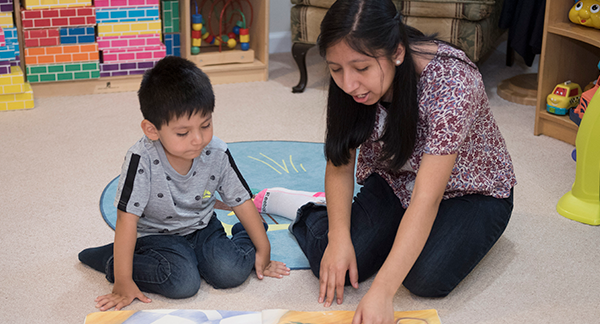
Multisector Approach to Improve Healthy Eating and Physical Activity Policies and Practices in Early Care and Education Programs: The National Early Care and Education Learning Collaboratives Project, 2013–2017
Garvin, T.M., Weissenburger-Moser Boyd, L., Chiappone, A., Blaser, C., Story, M., Gertel-Rosenberg, A., Shuell, J., Chang, D., Ward, D., Plumlee, C., Beets, M., and Yaroch, A.L. Preventing Chronic Disease (July 2019).
Background: Children begin building healthy eating and physical activity habits early in life, making early care and education (ECE) settings a promising place to promote best practices in nutrition and physical activity. The National Early Care and Education Learning Collaborative Project (ECELC) brought an intensive training, technical assistance and peer learning program to child care programs in ten states over five years. This study looks at how effective that program was in improving best practices in child care.
Methods: A total of 1,173 ECE programs completed a self-assessment of their nutrition, physical activity, screen time, breastfeeding and outdoor play policies and practices using the Nutrition and Physical Activity Self-Assessment for Child Care (NAP SACC). The programs completed the NAP SACC at the beginning of the ECELC program (pre-test) and again at the end of the program six months later (post-test).
Results: Participating ECE programs followed significantly more best practices at post-test than they had at pre-test across all five NAP SACC topic areas.
Conclusions: The ECELC project led to significant changes in the nutrition, physical activity, screen time, breastfeeding and outdoor play practices in ECE settings. The project was effective across ten states and both center-based and family child care programs, presenting a promising model for creating healthier environments in child care.
Practice Implications
This study shows that the multi-component learning collaborative model is an effective way to change practices in child care settings. The model includes:
- Bringing a cohort of child care providers together for trainings over a 6-12 month period.
- Completing a self-assessment.
- Using the self-assessment to develop an action plan.
- Providing technical assistance and coaching to support providers as they move through their action plan.
- Facilitating peer learning in the cohort by allowing providers to share ideas, challenges and successes.
Child care resource and referral agencies should consider adapting the learning collaborative model to other topic areas, like social-emotional heath or building strong business practices. When providers have the opportunity to reflect on their programs, learn from their peers and gain support from expert coaches, they can make great strides toward improving their program quality.
Policy Implications
The results from this paper tell us something important: Child care programs are capable of meeting higher standards for nutrition, physical activity, screen time, outdoor play and breastfeeding. It also tells us that a combination of training, technical assistance and supportive resources can help providers meet those higher standards. Setting standards, either through child care licensing or QRIS, is only one piece of the puzzle. To make sure that all providers have what they need to meet those standards, policymakers must also provide funding to help them do it. Although this study does not address the cost of the ECELC project, we know that the combination of training, coaching and supportive materials can be expensive. If policymakers want to see the quality of child care programs improve, they have to be willing to invest in the tools and resources providers need to make those changes. Visit the Voices for Healthy Kids Initiative to learn more about how state and local advocates can pursue policy changes that make child care a healthier space for young children.







